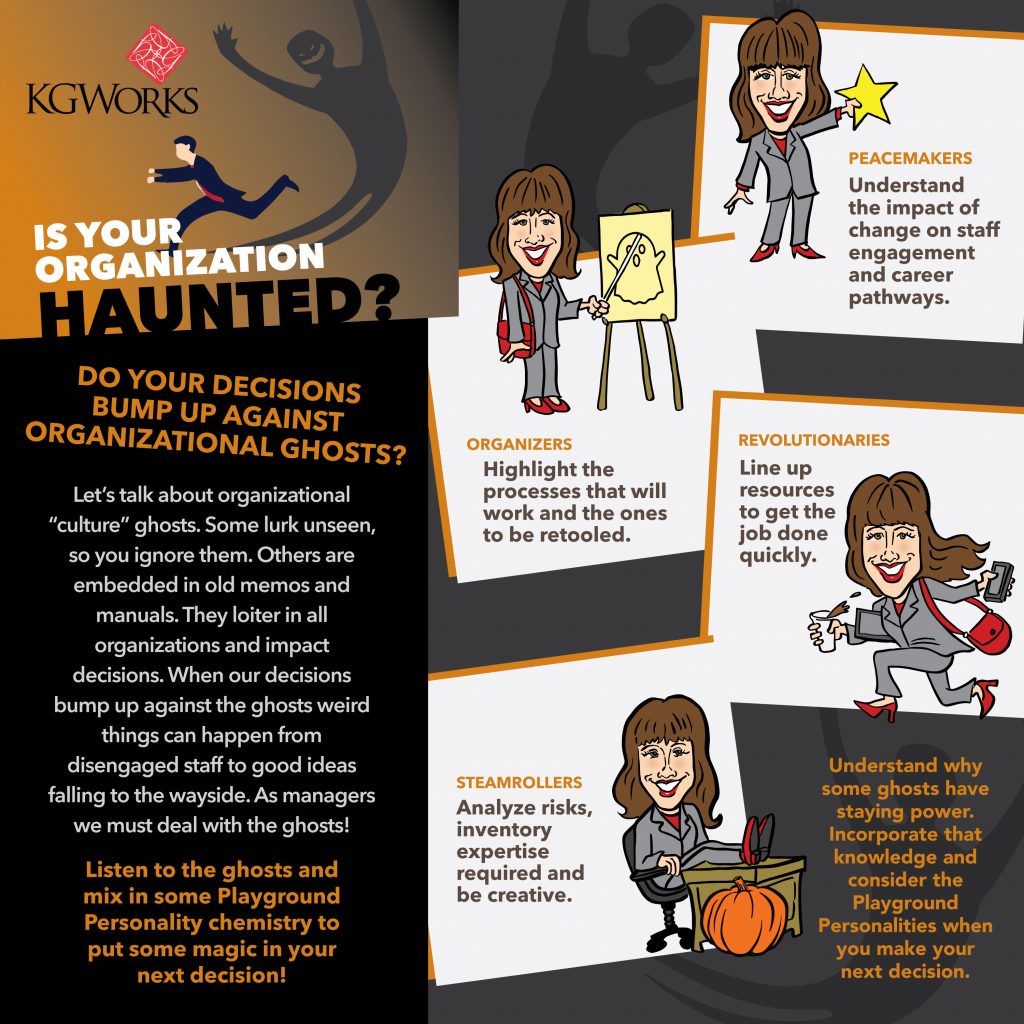Publication 12, Issue 2
A Clear Roadmap to Being a Happy and Productive Manager
Let’s take a breath and focus on the “basics!” I know this might be an overused term, but hear me out! We’re smart, competent managers, who like to be around other smart, competent staff, but sometimes I think we spend too much time in the “ether,” we overcomplicate things and forget that there’s a lot going on right here on the ground! So, how do we “keep it real & simple” when we’re writing strategic plans, hiring staff, increasing communication in our organizations and of course, keeping an eye on the bottom line? Read on!
Here are five easy strategies and some great communication insights, you most likely know but have forgotten – what I refer to as “The Forgotten Five©.” It’s back to basics boot camp style:
1. Knowing Who’s Who – know yourself first, and then try to figure out others. How do you spot these Playground Personalities© on your feet in a meeting?
- Peacemakers make eye contact and engage the person they are speaking with;
- Organizers may stand up in a meeting and take charge at a flipchart;
- Revolutionaries are sometimes distracted by the whole conversation and will start their own conversation with the person next to them, and;
- Steamrollers might try to hijack the meeting if they believe it’s not going their way!
The trick here is recognizing each and knowing the right words and actions to motivate them – they all aren’t motivated by the same things!
2. The Complexity of Respect – we all want to be treated with respect. But respect means something different to each. While the principles of respect never change, the ways we express them do. How does this play out? Showing respect to a Peacemaker means working together, brainstorming possibilities and getting people involved along the way. When you want to show respect to Steamrollers give them a difficult problem to solve and ask them for their opinions. It’s as easy as that!
3. Facing Facts – this is critical in day-to-day interactions. Managers need to make sure they collect facts through the eyes of each Personality. If they don’t, they will miss important information. So send the Peacemaker to find out about how the people fit into the picture, ask the Organizers to gather details and straight answers, even if you don’t want to hear them! Let the Revolutionaries do their thing and have them discover issues way in advance before something explodes and allow the Steamroller to validate the information along the way, so it’s not so overwhelming.
4. Finding Humor – which is never personal! Don’t make light of serious situations that impact people’s lives; find the absurdity in the situation and focus on it. The Playground Personality that does this flawlessly is the Revolutionary because he/she values stepping back and looking at the entire situation as well as the people in it – it keeps him/her grounded!
5. Using Tact – which is where the rubber meets the road! Remember we get paid for getting things done. This looks very different to each Playground Personality. Anyone can implement a plan, it’s the clean-up that is difficult when things aren’t established right from the “get-go.” So tap into all of the Personalities: make sure you engage the people, create a plan, get the buy-in along the way and articulate the vision for the future!
Good luck!

